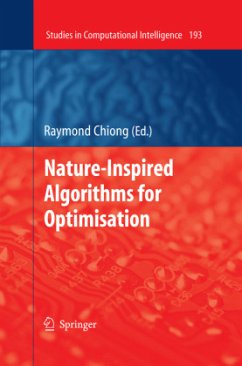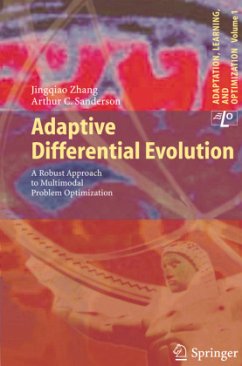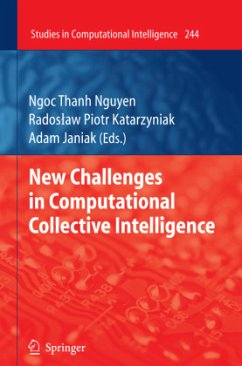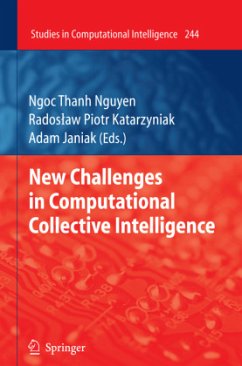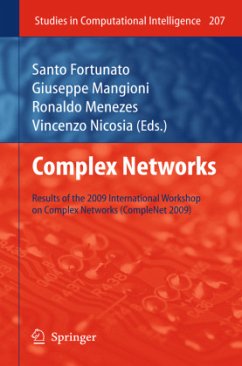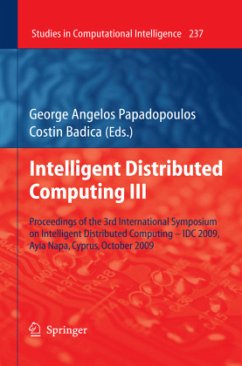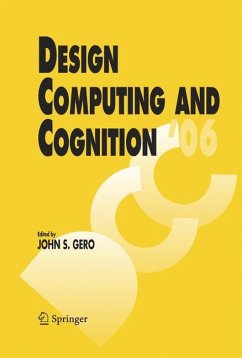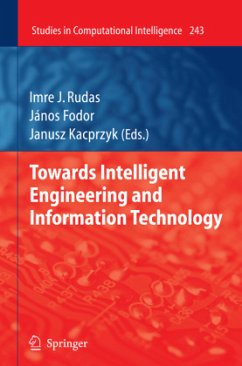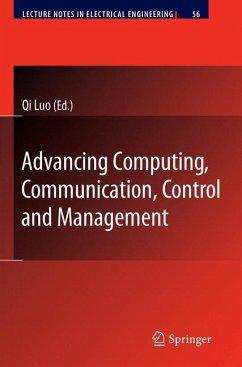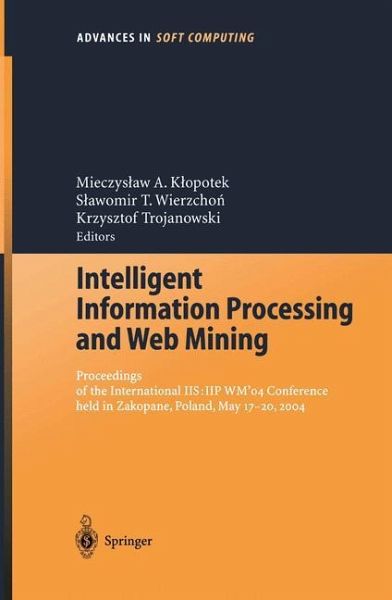
Intelligent Information Processing and Web Mining
Proceedings of the International IIS: IIPWM'04 Conference held in Zakopane, Poland, May 17-20, 2004
Herausgegeben: Klopotek, Mieczyslaw A.; Wierzchon, Slawomir T.; Trojanowski, Krzysztof

PAYBACK Punkte
115 °P sammeln!
This volume contains articles accepted for presentation during The Intel ligent Information Processing and Web Mining Conference IIS:IIPWM'04 which was held in Zakopane, Poland, on May 17-20, 2004. This conference is a continuation of a series of 13 successful symposia and conferrences on Intel ligent Information Systems, organized by the Institute of Computer Science of Polish Academy of Sciences, devoted to new trends in (broadly understood) Artificial Intelligence. The idea of organizing such meetings dates back to 1992. Our main in tention guided the first, rather small-audience, workshop ...
This volume contains articles accepted for presentation during The Intel ligent Information Processing and Web Mining Conference IIS:IIPWM'04 which was held in Zakopane, Poland, on May 17-20, 2004. This conference is a continuation of a series of 13 successful symposia and conferrences on Intel ligent Information Systems, organized by the Institute of Computer Science of Polish Academy of Sciences, devoted to new trends in (broadly understood) Artificial Intelligence. The idea of organizing such meetings dates back to 1992. Our main in tention guided the first, rather small-audience, workshop in the series was to resume the results gained in Polish scientific centers as well as contrast them with the research performed by Polish scientists working at the universities in Europe and USA and their foreign collaborators. This idea proved to be attractive enough that we decided to continue such meetings. As the years went by, the workshops has transformed into regular symposia devotedto such fields like Machine Learning, Knowledge Discovery, Natural Language Processing, Knowledge Based Systems and Reasoning, and Soft Computing (i. e. Fuzzy and Rough Sets, Bayesian Networks, Neural Networks and Evo lutionary Algorithms). At present, about 50 papers prepared by researches from Poland and other countries are usually presented. This year conference devotes much more attention to the newest devel opments in the area of Artificial Intelligence, related to broadly understood Web mining.





